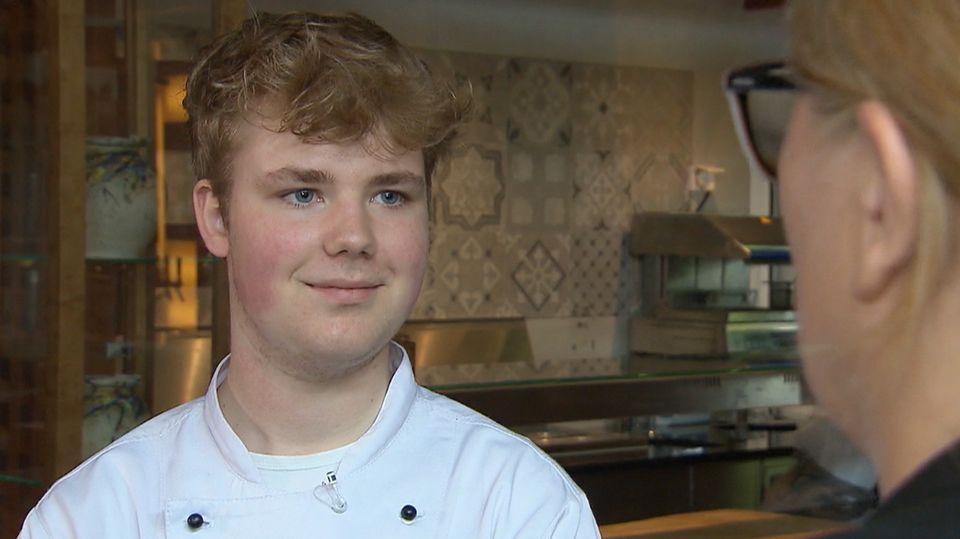Good news for (potential) Bafög recipients: Following a decision by the Bundestag, the maximum rate is increasing. In addition, students starting their studies from poorer households will receive start-up assistance. But there is still criticism.
Students and pupils in need will receive more student loans starting in the new school year and the coming winter semester. On Thursday, the Bundestag passed a corresponding reform proposal from the traffic light coalition with the votes of the SPD, the Greens and the FDP. The Union, the Left and the Sahra Wagenknecht Alliance voted against it, and the AfD abstained. After much criticism from social associations and student representatives, the traffic light coalition had once again changed its student loan reform and added an increase in the rates that were not initially planned in the draft law by Federal Education Minister Bettina Stark-Watzinger (FDP).
After the Bundestag, the Bundesrat still has to deal with the Bafög reform, but the plan does not need the approval of the state chamber. Bafög was last increased by 5.75 percent for the winter semester 2022/23.
By how much will the Bafög rate increase?
The so-called basic needs for students are set to rise from 452 to 475 euros in the winter semester, and the housing allowance for those who no longer live with their parents from 360 to 380 euros. In total, this means an increase from 812 to 855 euros. Older students who have to pay for their own health insurance because they are no longer covered by their parents can also currently receive a supplement of 122 euros, bringing the maximum rate to 934 euros. This supplement is also set to rise, so that the maximum rate will be 992 euros in the future.
What changes for needy students?
The reform will also increase the Bafög rates for students. The increase will take effect from August 1st at the start of the new school year.
What about the allowances?
Since assets, personal income, income of parents and possible spouses are taken into account, the actual amount of Bafög is always individual. This is where the next point of the reform comes in: an increase in the allowances that apply when calculating the amount. They are to increase by 5.25 percent in order to expand the circle of Bafög recipients. Higher allowances mean that parents and Bafög recipients will be allowed to earn more in the future and will still not immediately be excluded from Bafög funding. Background: In the past, the number of recipients had fallen significantly. According to the Federal Statistical Office, 630,000 people received Bafög benefits in 2022, compared to 979,000 ten years earlier.
What is the new study start-up aid all about?
Starting next winter semester, students who are under 25 years old and receive citizen’s allowance or live in families who have to supplement their income with other state benefits such as child allowance or housing benefit will receive 1,000 euros. In its draft bill, the Federal Ministry of Education is roughly expecting around 15,000 applications for this study start-up aid. Last year, almost 480,000 first-semester students were counted at German universities.
The application will probably be possible via the “Bafög Digital” portal, where Bafög can also be applied for online. Uploading proof of receipt of the social benefits mentioned and a copy of the enrollment certificate should be sufficient. The 1,000 euros start-up aid does not have to be repaid and is not counted as income for other benefits, including Bafög.
Are students entitled to Bafög for longer?
The Bafög reform provides for the introduction of a so-called flexible semester. If time is running out at the end of the course and the final thesis is pressing, those affected should be able to receive Bafög funding for six months longer, even if the end of the standard period of study has already been reached. It should also be easier to change your subject without jeopardizing your entitlement to Bafög.
Will there be any changes to the repayment?
The original plan to increase the minimum installments for Bafög repayments from 130 to 150 euros per month will not be implemented. This means that a maximum of 10,010 euros of debt must be repaid, because after 77 installments have been paid off, the rest is usually forgiven.
The Federal Training Assistance Act (Bafög) has been reformed several times since it was introduced in 1971 – the name of the law now stands colloquially for the actual cash benefit. What was initially a grant without repayment later became a full loan. Since 1990, the rule has been that half is given as a gift, the other half must be paid back.

There are still 228,000 apprenticeships available – why companies must now recruit trainees
01:47 min
How is the reform assessed?
In the debate in the Bundestag, opposition speakers criticized the Bafög increases as being too low in view of the significantly increased cost of living. “They are giving the citizens’ allowance recipients 12 percent more and the students are not worth that to you,” said CSU politician Daniela Ludwig in response to the traffic light parties. Politicians from the coalition defended the reform and pointed out that Bafög had already been increased in the current legislative period and reformed in other areas. “We are taking care of Bafög like no coalition before,” said the chairman of the Bundestag’s education committee, Kai Gehring (Greens). All in all, this is the biggest Bafög reform in over 20 years, said SPD education politician Oliver Kaczmarek.
The German Student Union (DSW) was critical. “It’s a shame, more would have been possible,” said DSW chairman Matthias Anbuhl. He spoke of isolated improvements that were going in the right direction. Overall, however, the reform fell short of a real structural reform.
Source: Stern
I have been working in the news industry for over 6 years, first as a reporter and now as an editor. I have covered politics extensively, and my work has appeared in major newspapers and online news outlets around the world. In addition to my writing, I also contribute regularly to 24 Hours World.




